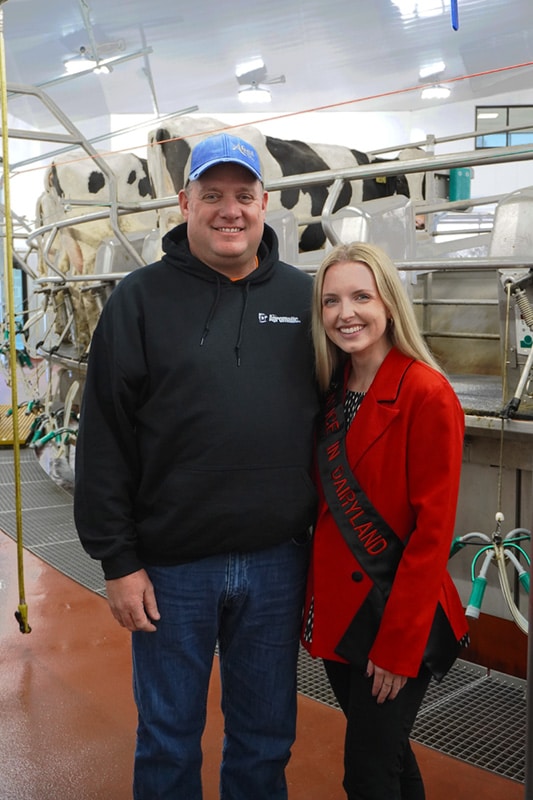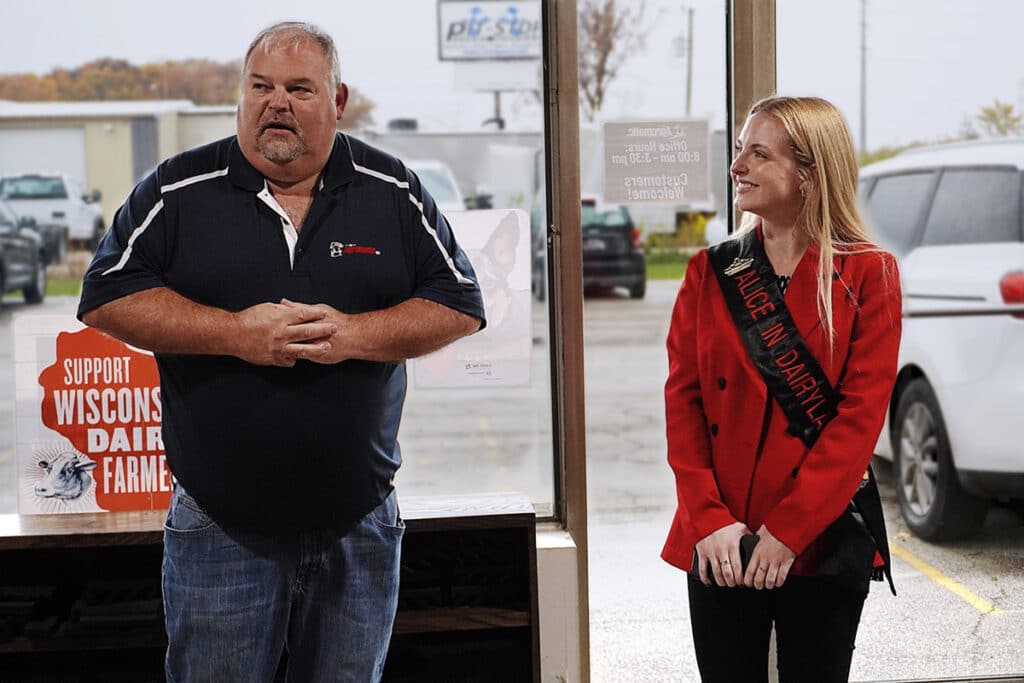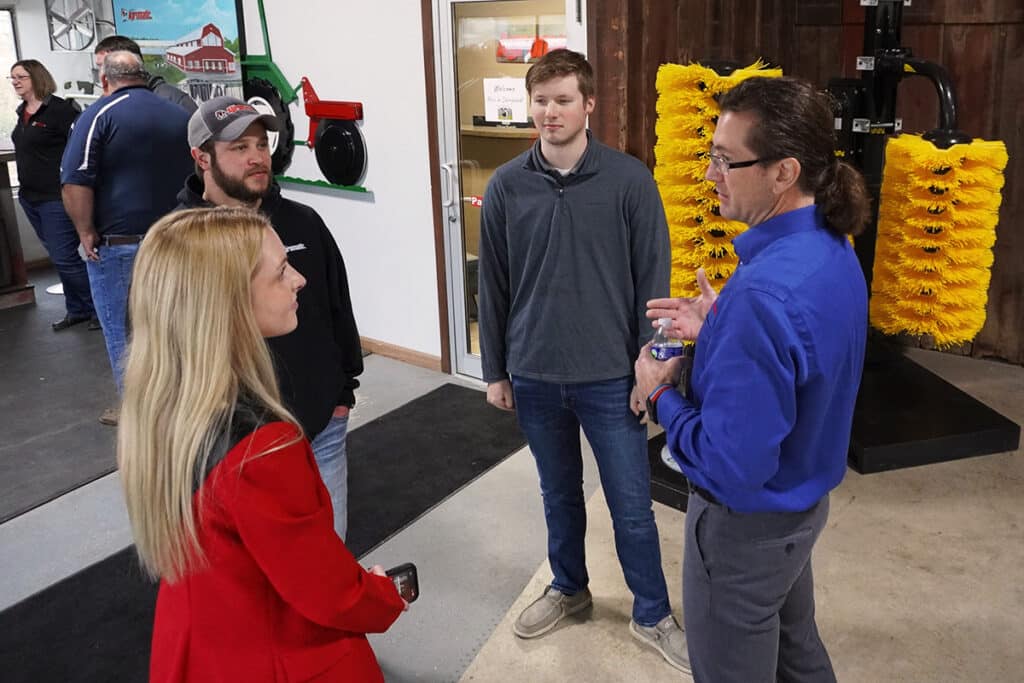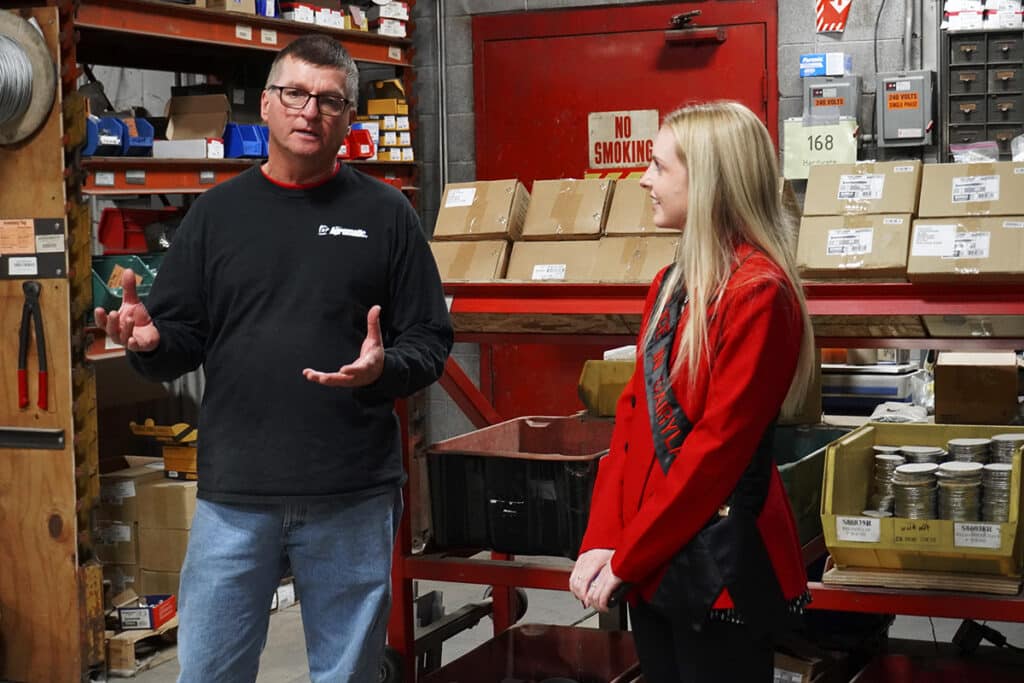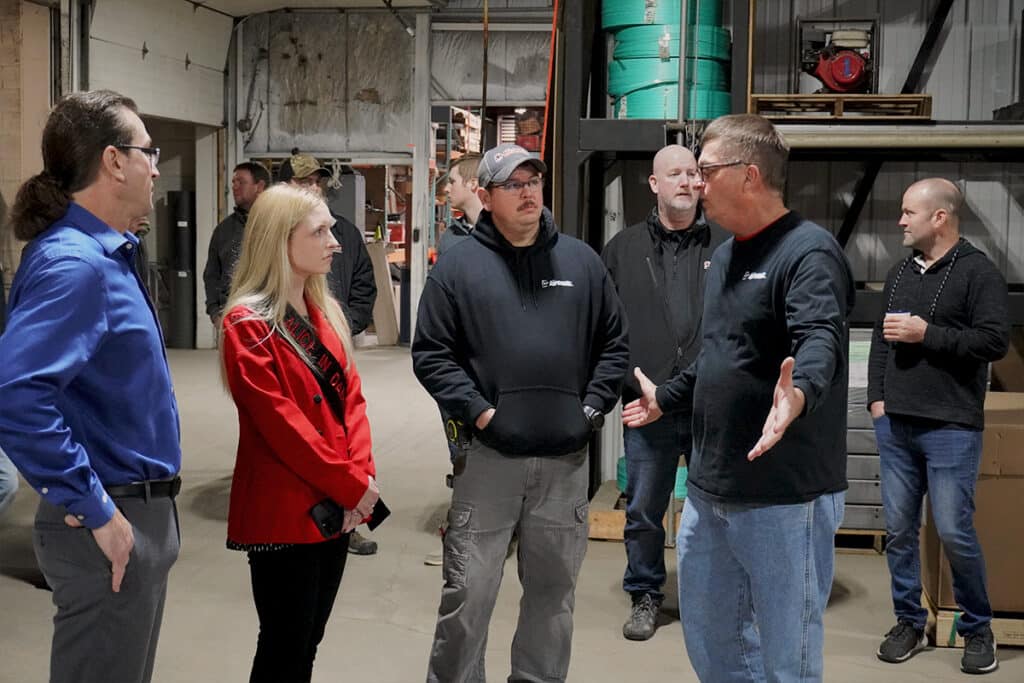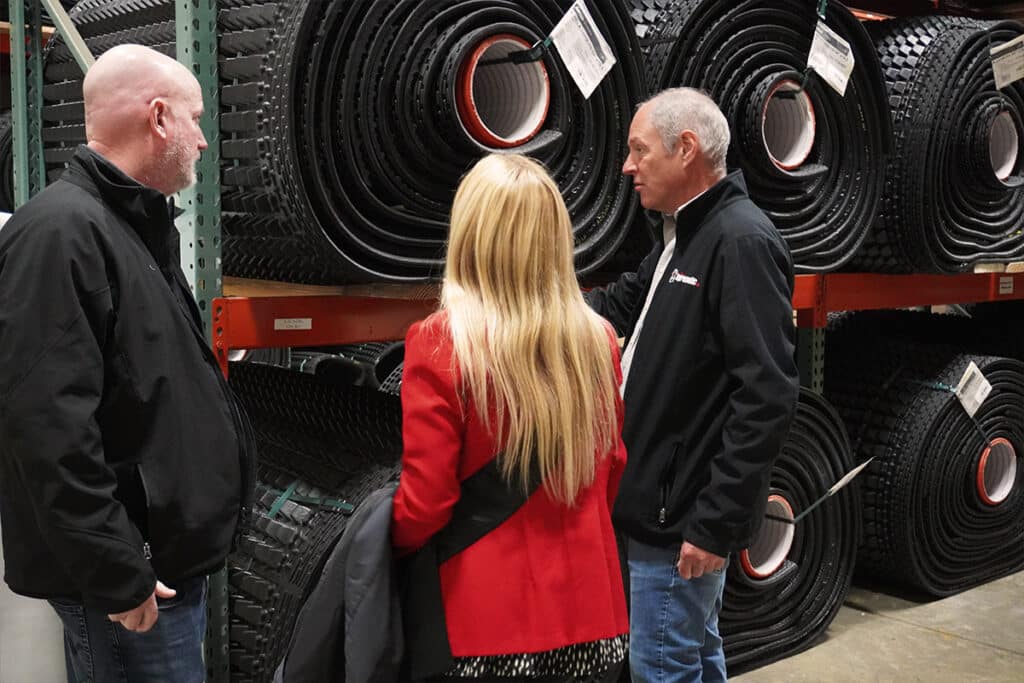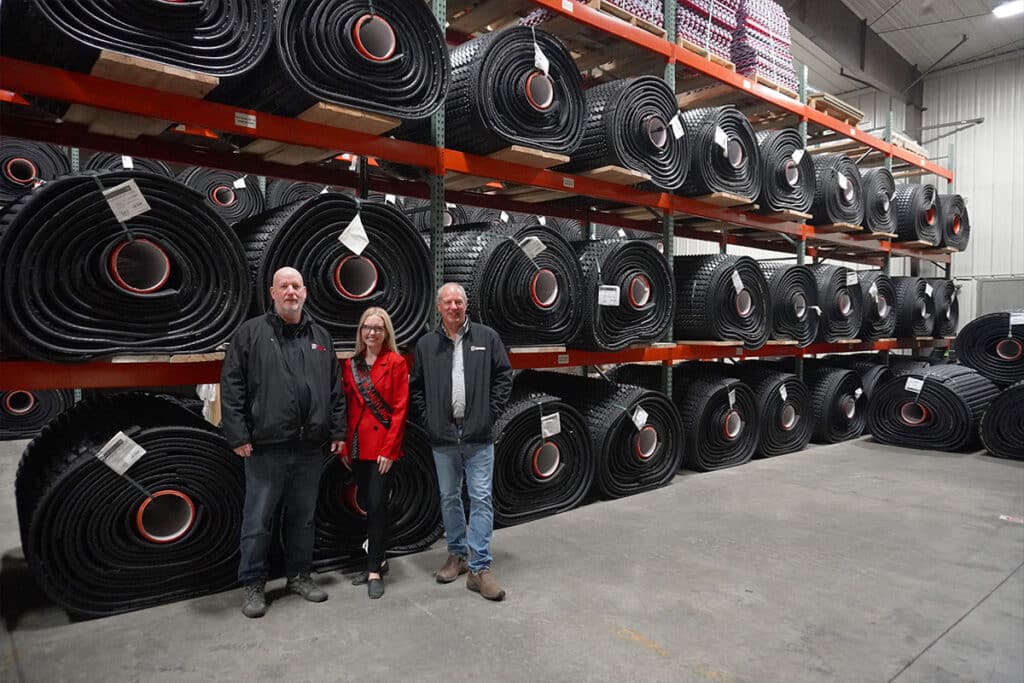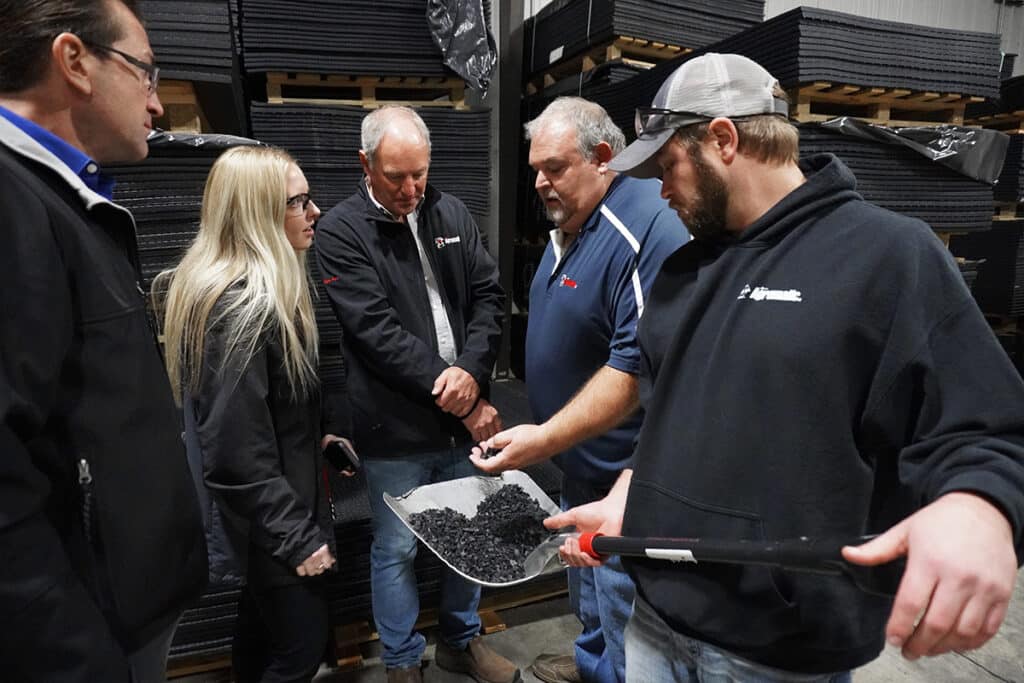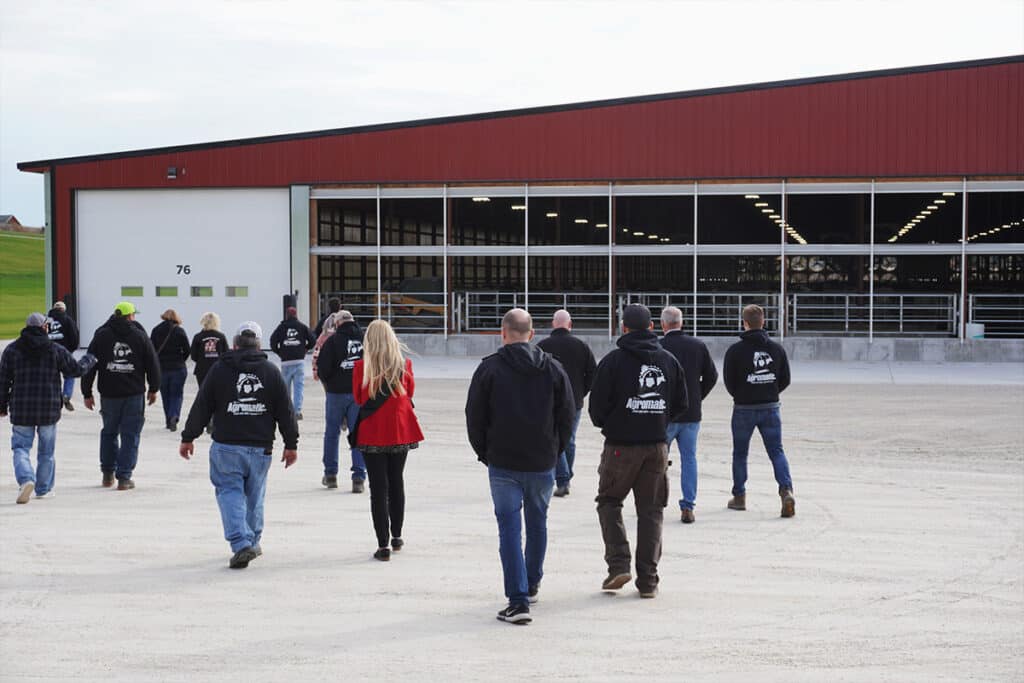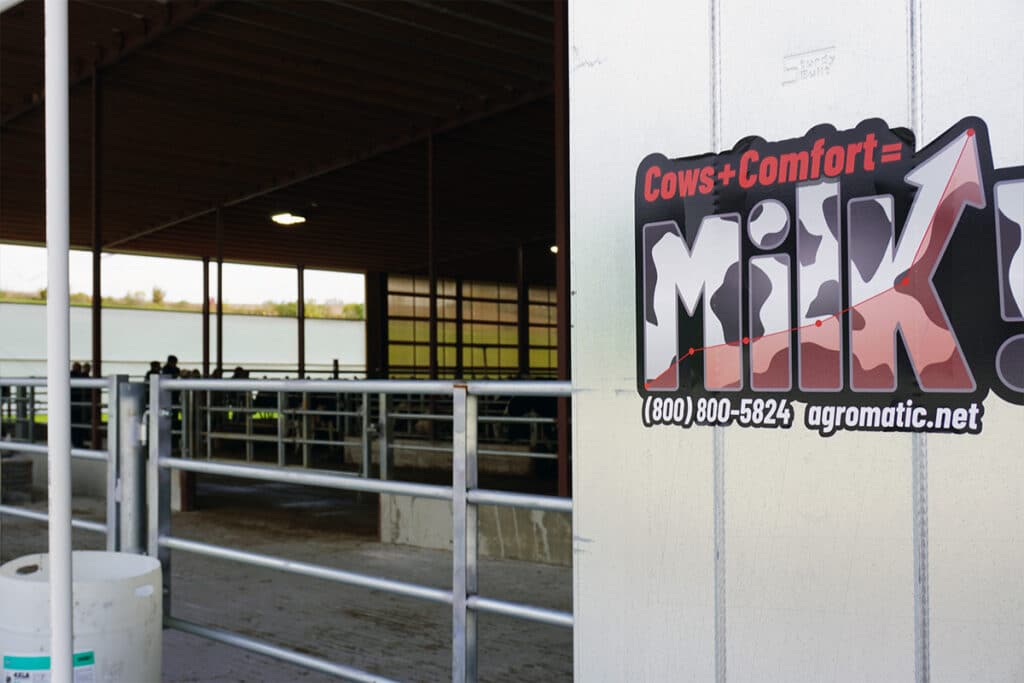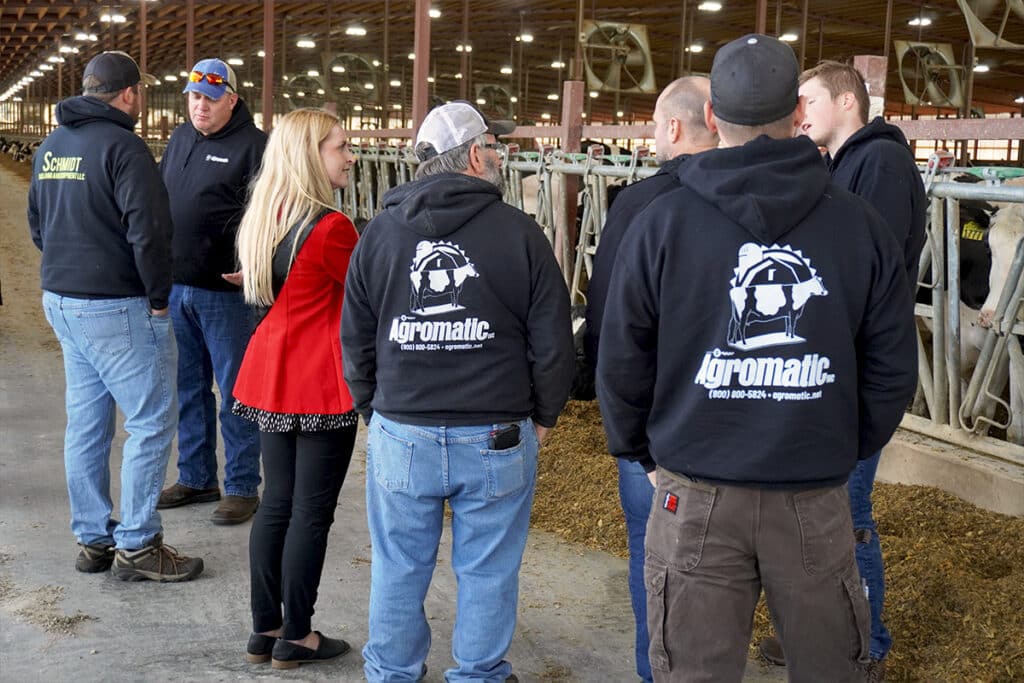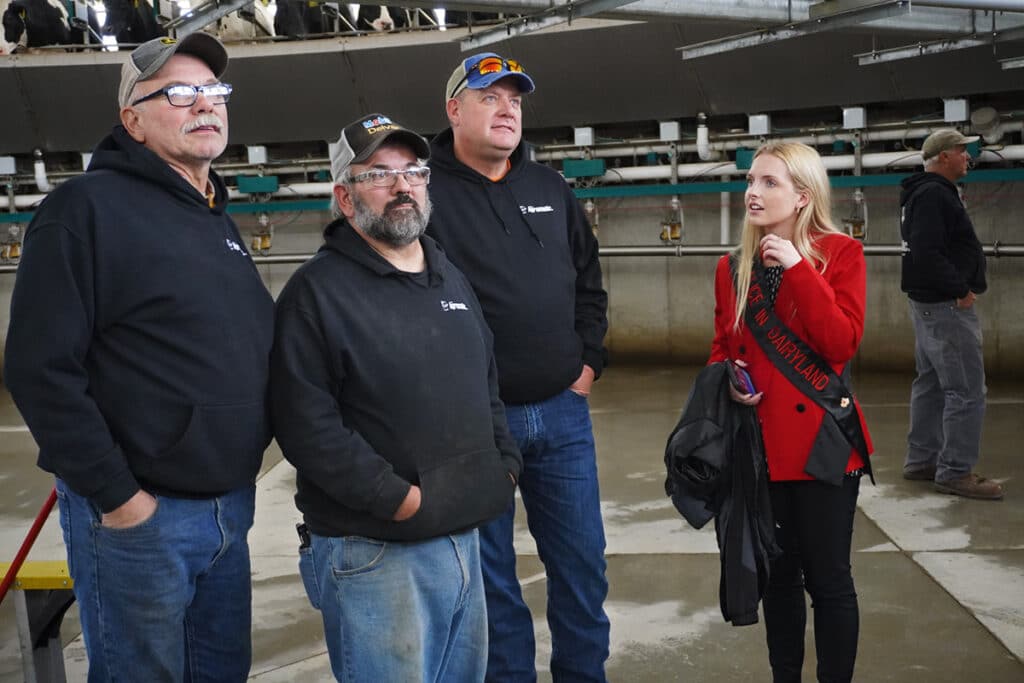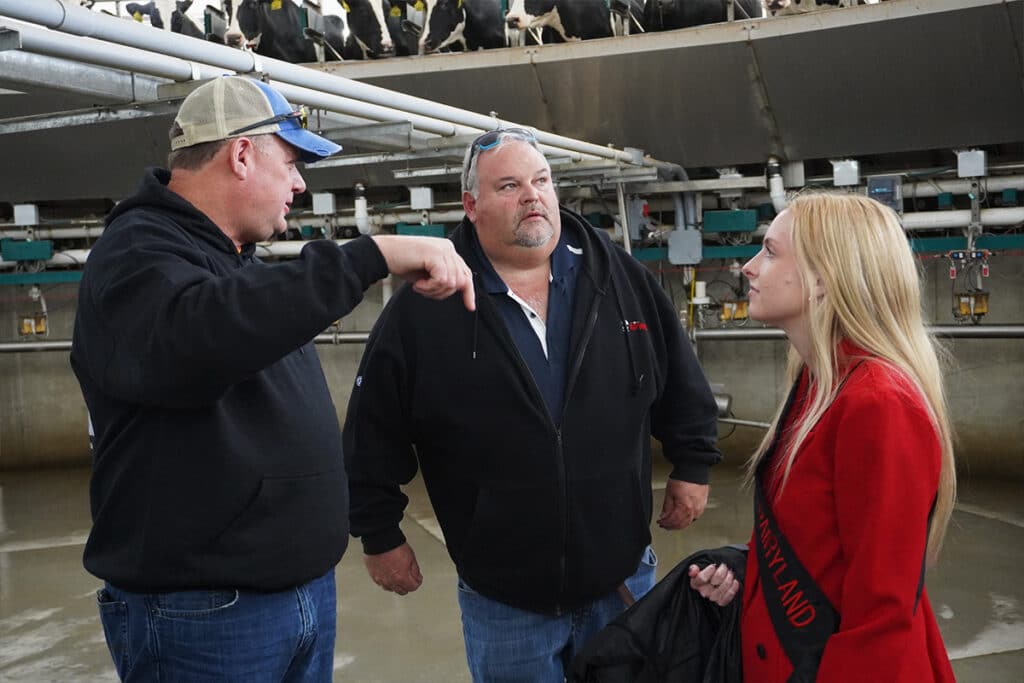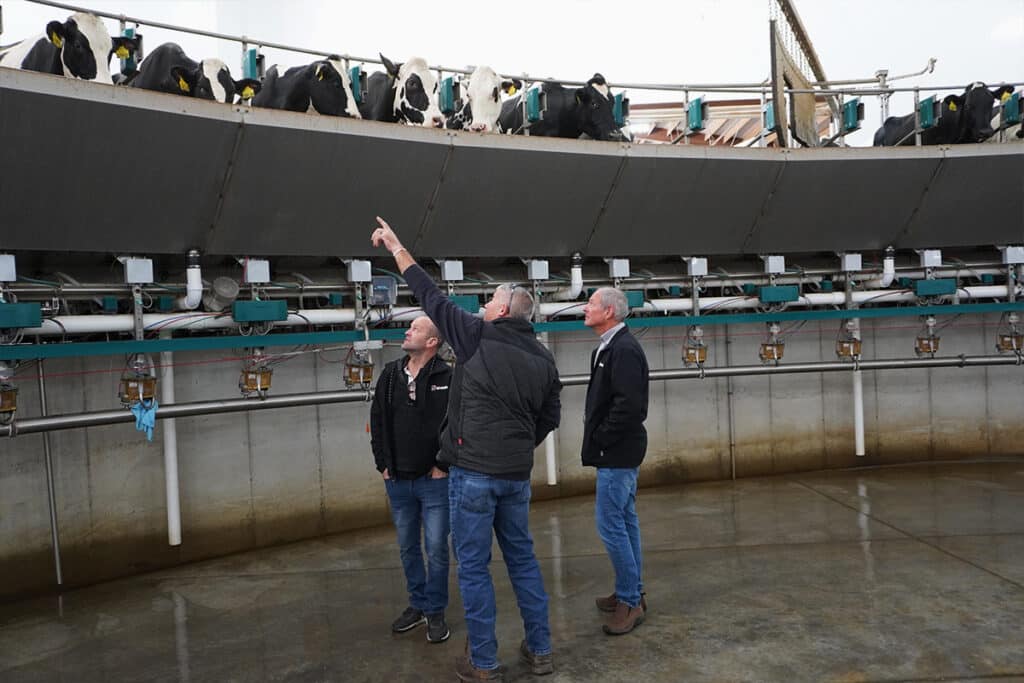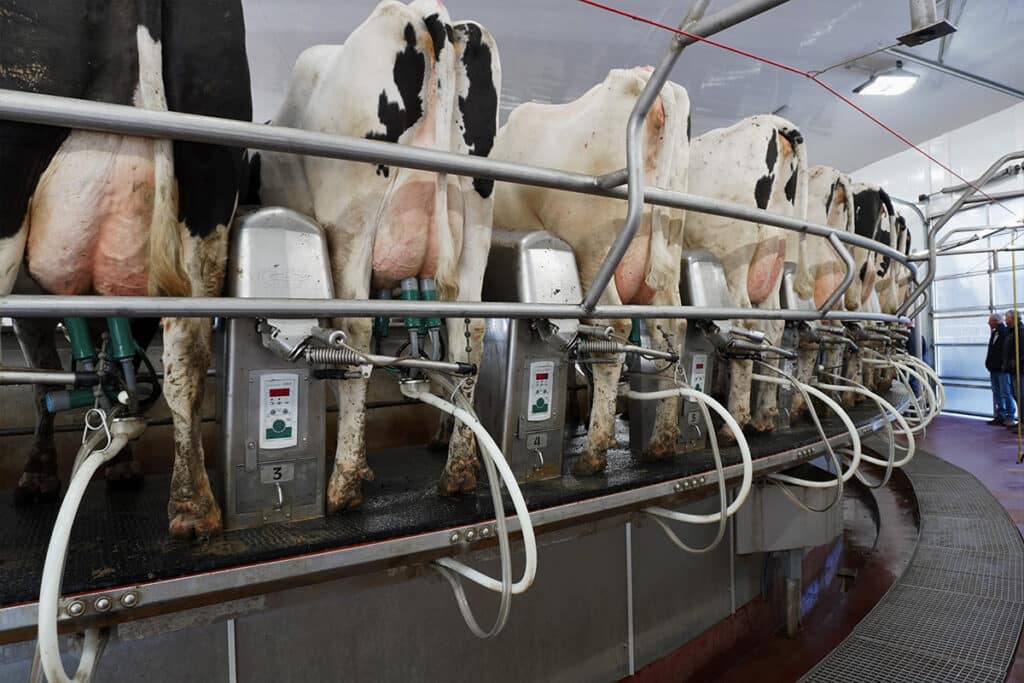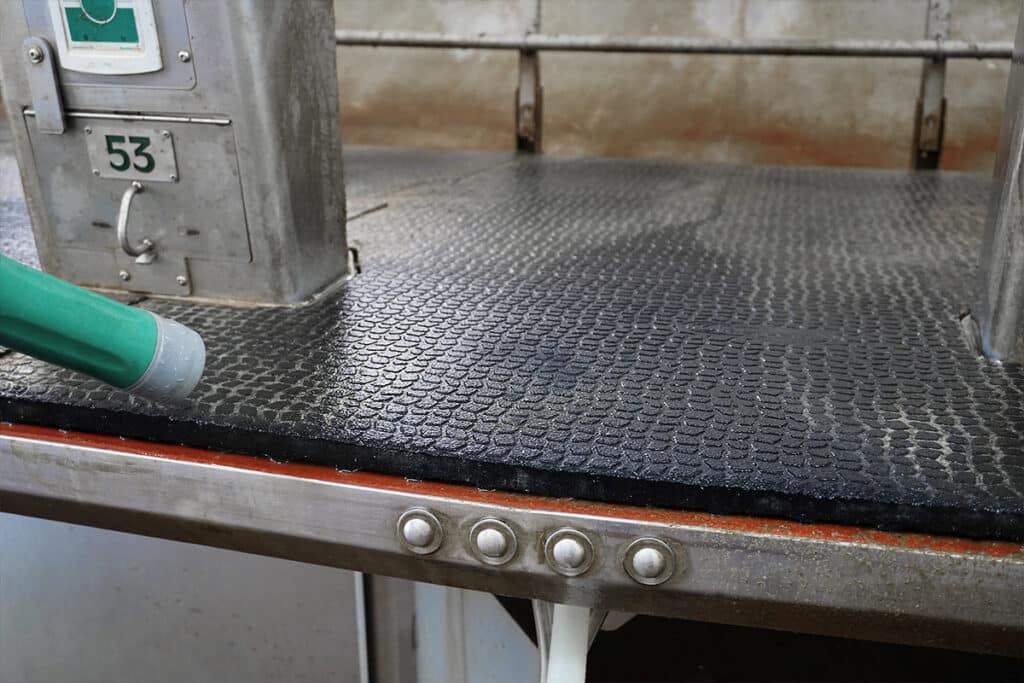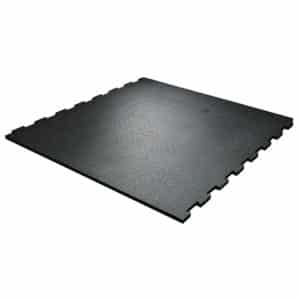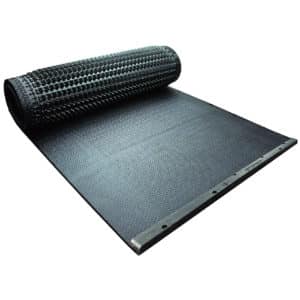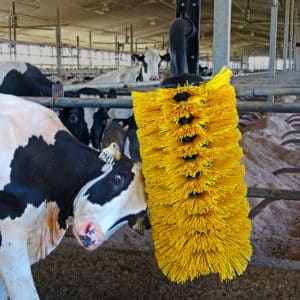Alice in Dairyland Tours Agromatic, Celebrates Wisconsin Agriculture
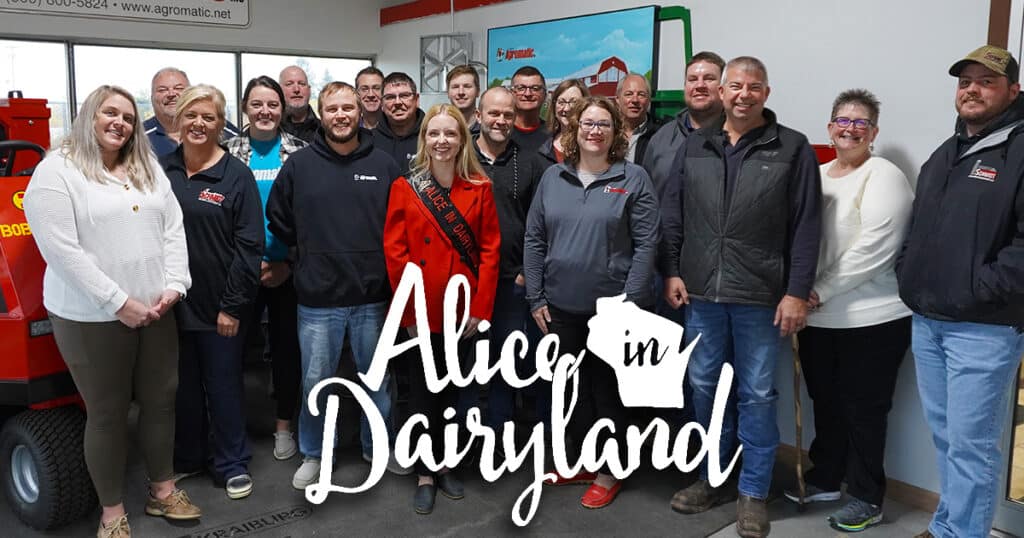
Ashley Hagenow, the 76th Alice in Dairyland, Wisconsin’s premier agricultural ambassador, made a day-long visit to Agromatic on October 13, 2023. This visit highlights both parties’ ongoing commitment to promoting Wisconsin’s rich agricultural heritage and its modern advancements.
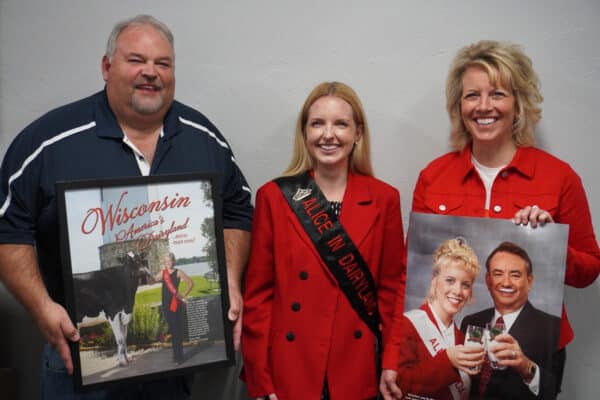
Courtney Booth, the 50th Alice in Dairyland, joined Agromatic’s Dean Birschbach and the current (76th) Alice in Dairyland, Ashley Hagenow. Courtney is a leadership consultant to the Agromatic Inc organization through Booth Leadership.
Agromatic, known for its innovative solutions in farm equipment, welcomed Hagenow, showcasing the best of what Wisconsin’s agricultural technology has to offer.
As Alice in Dairyland, Hagenow’s role is pivotal in enhancing public understanding of the importance of the state’s agricultural industries. She engages with media, youth organizations, civic groups, and participates in a variety of local events to champion the cause of agriculture.
Sharing Industry Insights
During her tour at Agromatic, she was welcome by owner Dean Birscbach, and explored the company’s facilities, including their offices, welding, and manufacturing shops.
Following the visit to Agromatic, Hagenow continued her tour at Abel Dairy Farms in Eden, owned by Steve Abel, a longtime partner of Agromatic. Abel shared his wisdom on leading a growing dairy farm team and the innovation in the dairy industry.
His experience and insights provided a valuable perspective on the practical application of Agromatic’s products and the challenges and opportunities in modern dairy farming.
Agricultural Advocates & Leaders
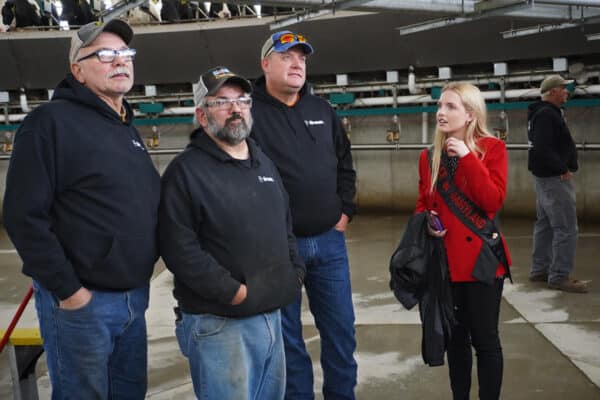
As Alice in Dairyland, Hagenow’s role in bridging the gap between agricultural communities and the public is more crucial than ever, especially in an era where understanding and appreciation of this vital industry are essential for future sustainability.
This visit is one of many initiatives that Hagenow will undertake during her tenure as Alice in Dairyland, as she continues to advocate for Wisconsin’s agricultural sector and educate the public about its significance and impact on the state’s economy and way of life.
Photos of Alice in Dairyland’s Visit
Other Resources
- Alice in Dairyland website: https://www.aliceindairyland.com/
- Abel Farms on Facebook: https://www.facebook.com/abeldairyfarms
- Booth Leadership on Facebook: https://www.facebook.com/boothleadership
Common Questions
Q: Who is the new Alice in Dairyland 2023?
A: Ashley Hagenow is the (2023) 76th Alice in Dairyland – Click here to view her bio.
Q: What is the history of Alice in Dairyland?
A: Since its inception in 1948 for Wisconsin’s centennial, the Alice in Dairyland program has transformed from a “beauty contest” to a prestigious position for seasoned public relations professionals. The role now demands extensive knowledge and experience in agriculture, communications, and public relations, with a focus on promoting Wisconsin’s diverse agricultural sector. This evolution to a professional skill-based process reflects the program’s adaptation to the changing landscape of agriculture and communication in the modern world. Click here to view the program history.
Q: Why is Wisconsin called America’s Dairyland?
A: Wisconsin is called “America’s Dairyland” due to its long-standing dominance in the production of dairy products, particularly cheese. This nickname reflects the state’s significant contribution to the U.S. dairy industry. Wisconsin’s rich farmlands, favorable climate, and the influx of skilled dairy farmers, especially from European countries with strong dairy traditions, enabled it to become a leading dairy producer in the United States. By the early 20th century, Wisconsin was recognized for its high-quality cheese, eventually surpassing other states in cheese production. The state’s commitment to dairy farming and production, along with its substantial economic and cultural impact, has made “America’s Dairyland” an apt and enduring nickname for Wisconsin.
Q: What are the advantages and disadvantages of a rotary milking machine?
A: Rotary milking machines offer advantages such as increased efficiency and productivity, allowing for the simultaneous milking of multiple cows, which is particularly beneficial for large-scale dairy farms. However, they also present disadvantages, including a high initial investment cost, complexity in operation and maintenance, and a need for skilled labor to manage the sophisticated system. Additionally, these machines can require significant energy consumption, adding to operational costs.

